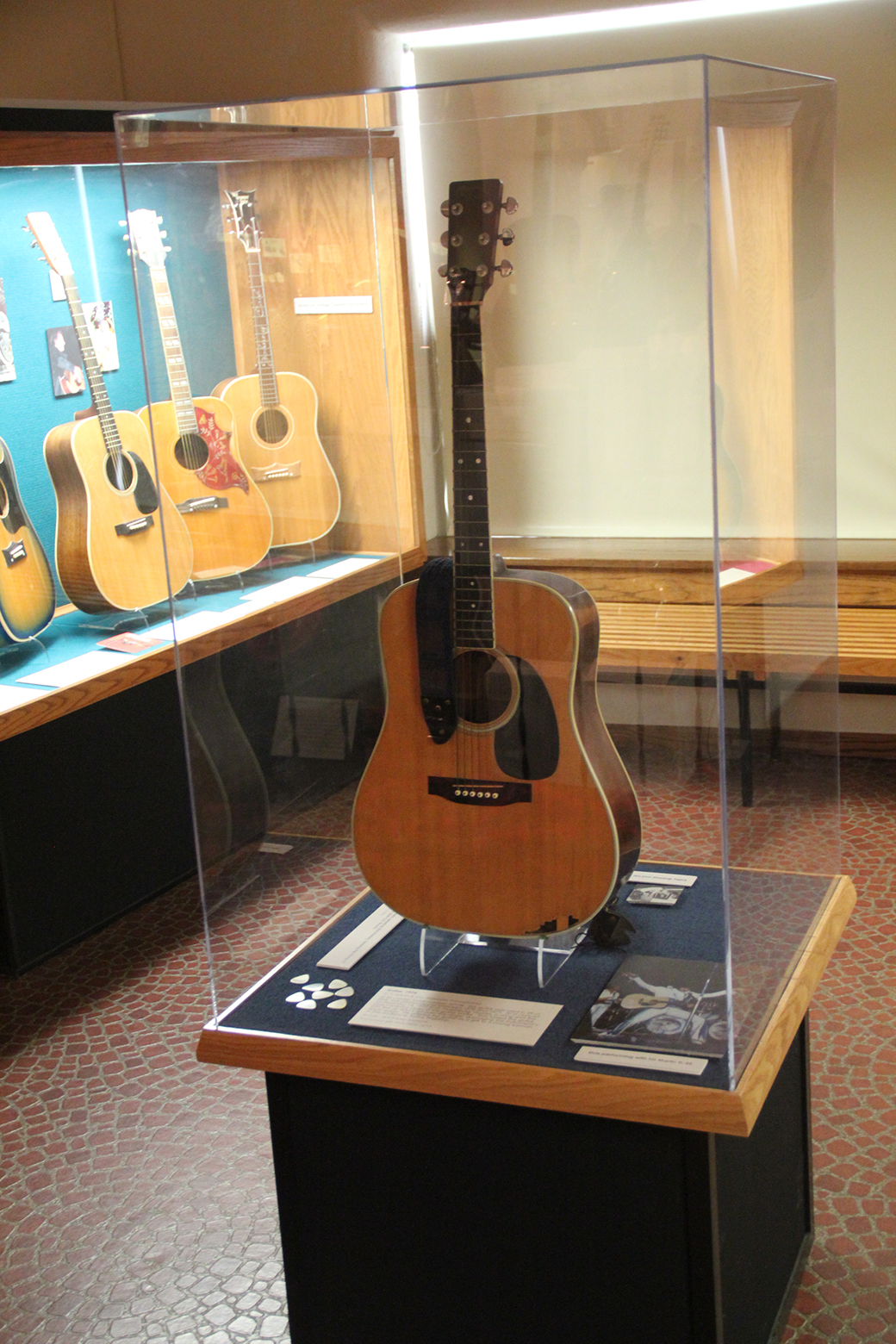
National Music Museum declared owner of disputed Elvis guitar
After several years of being passed around and fought over, one of Elvis Presleys’ guitars has been declared the property of the National Music Museum, fair and square.
Elvis threw the Martin D-35 guitar off stage during a concert in St.Petersburg, Fla. in February of 1977. It ended up in the hands of an audience member, Kathy Waldorp, who was given the damaged guitar by the King, said Arian Sheets, curator of stringed instruments at the National Music Museum.
“He (Elvis) decided to do a kind of cute thing, and offer it to a member of the audience as a gift, and so that’s how it survived,” Sheets said. “And that’s part of how we can document it as an authentic guitar, because there are pictures in the media from the time, showing the instrument, showing the damage, so it’s really easily verifiable.”
Seven months after giving away the damaged guitar, Elvis was dead. The guitar, however, lived on, and made its way through Kathy Waldorp into the hands of collectors – and in 2013, into the possession of the National Music Museum in Vermillion, becoming the sole Elvis-related instrument in the museum’s collection.
Not long after the Museum acquired the guitar, however, a man came forward to claim that the guitar was rightfully his.
“It was just a short time after the guitar was here, that an individual from Memphis appeared and made a competing claim of having owned the instrument,” said Cleveland Johnson, director of the National Music Museum.
The man was Larry Moss, who claimed that some years before, he had paid Robert Johnson for part ownership of the guitar. Moss said in court that Johnson, who donated the guitar to the museum as part of a package deal involving another guitar the museum paid for, had no right to give the guitar away.
“We saw the writing on the wall that that individual, who claimed to own the guitar, would probably sue for the guitar to be returned to him,” Johnson said. “We preemptively filed ourselves against him, to assert our ownership – and that gave us a little more control over the process.”
Ultimately, the case made its way to a federal court in Sioux Falls. Several associates of the National Music Museum, including Sheets, were required to give depositions during the trial.
Judge Karen Schreier eventually decided that Moss’ claim to ownership of the guitar was debatable.
Sheets said she was glad the guitar would be securely in the museum’s possession for the foreseeable future.
“Obviously I feel tremendous relief, because it really is a very evocative instrument,” Sheets said.
This guitar is special, Johnson said, because unlike many other instruments with dubious connections to famous people, there’s no doubt that the guitar was played by Elvis.
“The reason the Elvis (guitar) was so important to us was because it did have a real part, and play a real part in his performing life,” Johnson said.
Sheets said many people find the Elvis guitar extraordinary because of its relation to the King – which gives it a personal connection.
“For a lot of people, thinking of somebody that they know, a celebrity, somebody whose music they’ve listened to, and then seeing an instrument that was actually held and played by that person helps them create a connection with the objects, and they can say, ‘Oh, my Gosh, Elvis played this, Elvis used it,'” Sheets said.
Despite all the frustrations the guitar’s disputed ownership has caused, Johnson said in the end, it was all worth it.
“We feel it was worth the expense, and certainly worth, a couple or three years of headaches, of working through the legal process to defend the guitar,” Johnson said. “Because, ultimately it stays here at the university, and I think we should all be proud that it’s here.”


